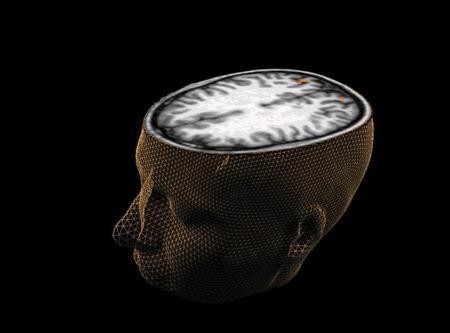
Researchers at the Shanghai's CAS-MPG Partner Institute for Computational Biology have conducted a study on the stronger and complex brains and weaker muscle strength of humans compared to its closest relatives such as apes and monkeys, who have weaker brains but stronger muscle strength.
The team from Shanghai led by Dr.Philipp Khaitovich has analyzed the evolution of human metabolism. They examined 10,000 metabolic molecules and also analyzed the metabolite levels in the three regions of the brain: primary visual cortex, involved in vision; the cerebellar cortex, that coordinates in muscular activity and the prefrontal cortex, involved in complex mental behavior, social behavior and decision making. Other body parts that were examined were kidney and thigh muscles.
Humans have a more powerful and complex brains than other primates. A reason behind the great brain power of humans can be understood as the human brain utilizes about 20 percent of the body's total energy.
Researchers have found that humans shifts energy-consumption between brains and muscles that eventually have helped them acquire better cognitive abilities. On the other hand, Chimps and other primates, has developed strong build muscles but a weaker brain.
The study found that the metabolic accumulation of small molecules of vitamins, sugar, neurotransmitters and amino acids are quicker in both muscles and brains, over the period of human evolution. Metabolites are tiny molecules that are produced during metabolism and play an important part during DNA and protein synthesis.
"Metabolites are more dynamic than the genome and they can give us more information about what makes us human. It is also commonly known that the human brain consumes way more energy than the brains of other species; we were curious to see which metabolic processes this involves." said Khaitovich in a news release.
Whereas, the rate of metabolism among primates grew at a very slow pace, which over the course of time led to better muscle power but low cognitive skills. For this the researchers conducted different tests that included macaques, chimpanzees, University students and professionals. The study found that compared to humans, other primates had better muscle power.
The researcher in order to check how much stronger chimpanzees and rhesus monkeys are as compared to humans had conducted test on muscle strength that involved upward pulling of weights. The lower primates outperformed all of the human volunteers in the experiment that included professional athletes.
"Our results suggest a special energy management in humans, that allows us to spare energy for our extraordinary cognitive powers at a cost of weak muscle. According to our results, an average adult chimpanzee is approximately two to three times stronger than an average adult human. Our work opens a door to further studies of human metabolic uniqueness," Khaitovich said. "It is a huge field that is virtually untouched by scientists." Live Science quoted Kasia Bozek, the lead author of the study.
















